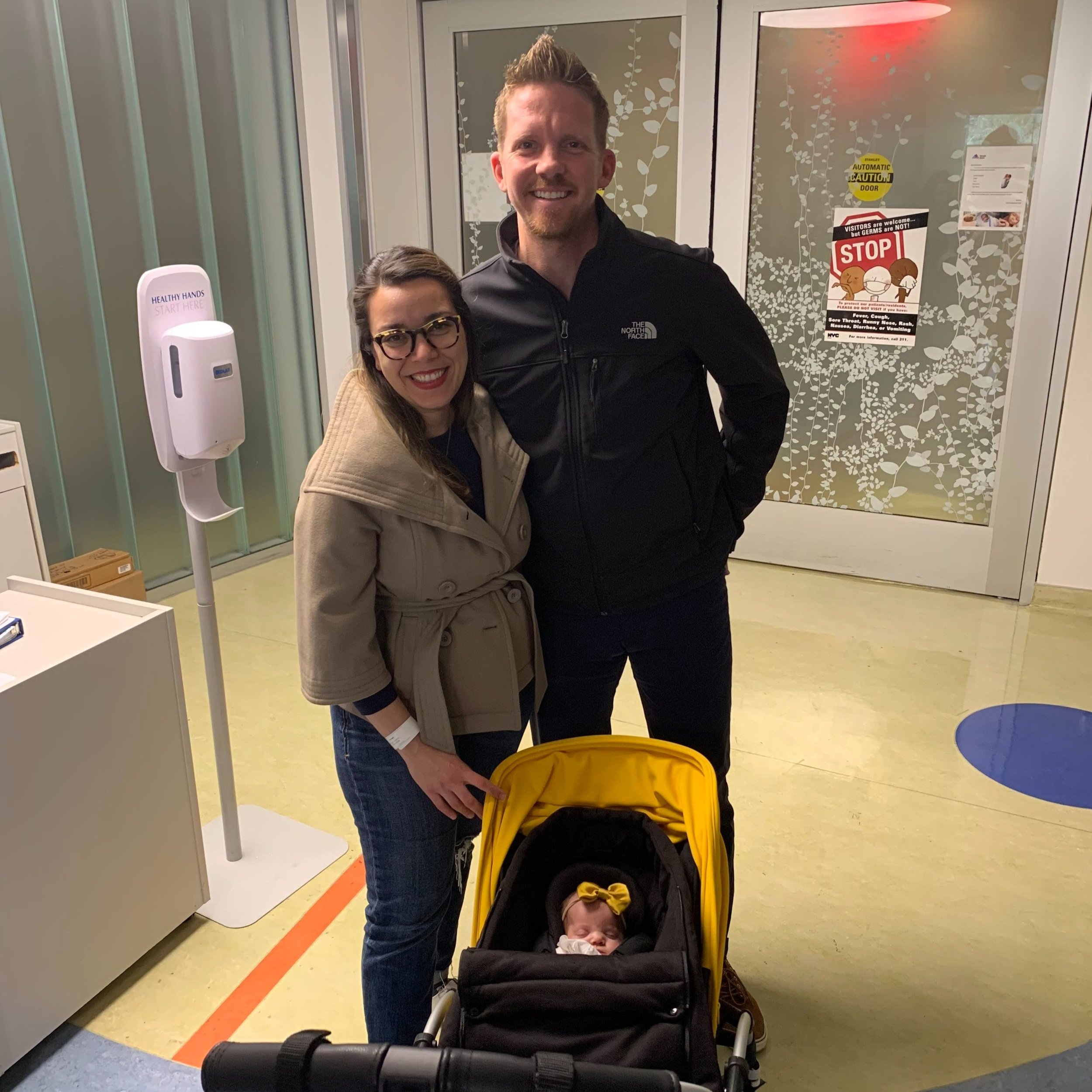Transitioning Home from the NICU
You’re finally home! Now what?
There’s a good reason that phrase is at the forefront of NICU Alumni’s content: Because while bringing your baby home from the NICU is an exciting milestone, it can also feel overwhelming and hard to know what to do next. This is a big adjustment period, paired with a to-do list that feels a million miles long. But we’re here to help, with this guide to the transition and a timeline of tasks to help you navigate this new chapter.
ADJUSTING TO HOME LIFE
After spending time in the NICU, the transition to home may feel overwhelming. Remember, it's normal to have mixed emotions and concerns. Here are a few suggestions that can help:
Prepare the Home: Before your baby's arrival, ensure the nursery is ready and equipped with essential supplies such as a crib, diapers, and feeding equipment. Creating a safe and comfortable environment for your little one will help you feel like the prepared and capable parent you are.
Establish a Support System: This is no time to let your relationships take a backseat. Reach out to family, friends, or support groups who can provide assistance and emotional support during this time. Having a network of people you trust can ease the transition.
FEEDING & NUTRITION
Feeding your baby may have been a different experience in the NICU. Here's what to expect:
Breastfeeding or Bottle-Feeding: Discuss with your healthcare provider the most suitable feeding method for your baby. Seek guidance from lactation consultants or feeding specialists if needed.
Feeding Schedule: Establish a feeding routine based on your baby's cues. Initially, premature babies may require smaller, more frequent feedings. Gradually, you can transition to a more typical feeding schedule.
MEDICAL FOLLOW-UPS
Regular medical follow-up appointments are crucial to monitor your baby's progress. Here's a timeline of tasks to keep in mind:
Discharge Plan: Before leaving the NICU, consult with your healthcare team about the follow-up care your baby will need, such as medication, therapy, or specialized equipment. Ask for all instructions in writing or, better yet, via email or another digital format so that you can’t misplace it. Caring for a baby can be hectic, and it’s easy for even the most organized parent to lose paperwork. NICU Alumni developed a Discharge Checklist to help get you started.
Immediate Check-Ups: Within the first week of being home, schedule a check-up with your pediatrician to evaluate your baby's growth, development, and address any concerns.
Immunizations: Follow the recommended immunization schedule for your baby's age. Consult your healthcare provider for guidance and ensure your little one receives necessary vaccinations.
🎙️ON THE PODCAST: We interviewed Dr. Michelle Klein, a distinguished pediatrician at Uptown Pediatrics, NYC. Listen to the episode to hear her advice about navigating the NICU Transition.
“Babies in the NICU have been watched so closely by so many, and then you go home and it’s like, where are all the people? It really is a feeling of overwhelm.”
DEVELOPMENTAL MILESTONES
Not all NICU babies are preemies, but if you have a premature baby, know that they may have different developmental timelines. Here's what you can expect:
Adjusted Age: Since your baby was born prematurely, their "adjusted age" accounts for the time spent in the NICU. It is calculated by subtracting the number of weeks born early from their chronological age. Use this adjusted age as a reference for developmental milestones.
Developmental Support: Engage in activities that promote your baby's development, such as tummy time, sensory play, and age-appropriate toys. Consult with your healthcare provider or specialists for specific guidance tailored to your baby's needs.
Consider Seeing a Developmental Pediatrician: These are doctors specially trained in child development, who work in collaboration with your regular pediatrician, therapists and other professionals on your child’s healthcare team. Find out more about developmental pediatricians.
EMOTIONAL WELL-BEING
The transition from the NICU to home can be emotionally challenging for parents. Take care of yourself as you care for your baby:
Self-Care: Prioritize self-care activities such as adequate sleep, healthy eating, and exercise. Take breaks when needed, and don't hesitate to ask for help.
Seek Support: Join support groups or seek professional counseling if you're experiencing anxiety, postpartum depression, or other emotional challenges. Remember, it's okay to ask for help.
Get more tips for taking care of yourself during the transition.
Transitioning home from the NICU with your new baby is a significant milestone. By understanding what to expect and following a timeline of tasks, you can navigate this period with greater confidence. Remember, each baby is unique, and your healthcare team is there to guide and support you through this journey.

